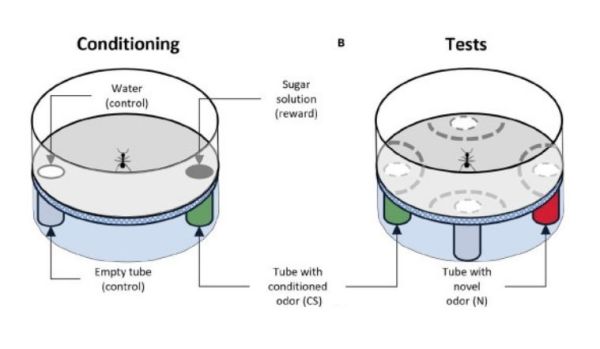Cancer cells are different from normal cells and have special abilities to produce volatile organic compounds (VOCs) that can act as biomarkers for cancer diagnosis when gas chromatography or synthetic olfactory systems are used.
But gas chromatographic results are highly variable and “electronic noses” (artificial olfactory systems) are still not at the viable prototype stage where a sufficiently cost-effective and accurate system is on the horizon.
This is why the noses of animals such as dogs are well suited for detecting VOCs produced by cancer cells and thus detecting cancer biomarkers. Dogs have developed their olfactory senses over millions of years of evolution and have the ability to detect very faint odors as well as the mental ability to distinguish and identify them.
But it takes months of training and conditioning before a dog can successfully distinguish between cancerous and non-cancerous cells and hundreds of time-consuming experiments. For example, In one studyit took 2 dogs, 5 months of training and 1,531 conditioning trials to perform 31 tests with an accuracy of 90.3%.
armed with previous guide That insects can also use smell to detect cancer cells, researchers have combined the use of ants with a ‘low-cost and easily transportable behavioral analysis’ to create a tool to detect cancer VOCs.
According to the research paper published in iScience, researchers presented 36 individuals Fosca Ants underwent three training experiments in which they were placed in a circular arena where the smell of a human cancer cell sample was associated with the reward of a sugar solution.
 During these tests, the ants spent more time near the conditioned odor (cancer cells) than near the culture medium alone. (Image credit: iScience)
During these tests, the ants spent more time near the conditioned odor (cancer cells) than near the culture medium alone. (Image credit: iScience)
During the experiments, the time the ants needed to find the reward decreased, indicating that they were trained to detect the presence of cells based on the emission of VOCs. This was confirmed by the ants performing two consecutive memory tests with no reward.
During the research, it was not only discovered that ants can distinguish between cancerous and non-cancerous cells, but they can also distinguish between cells from two different cancer lines.
The short training time and the fact that ants can easily reproduce makes their use as a VOC bio-detector for cancer cells more viable than training and testing dogs or other large animals with a great sense of smell.
.
[ad_2]




